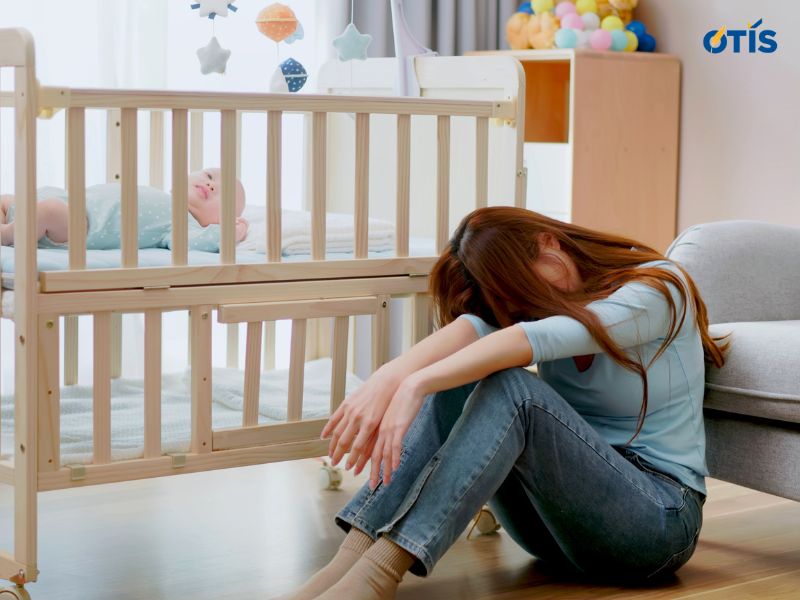Divorce, not every petition to the Court will be resolved. There are many cases where the Court will not resolve your divorce petition. So according to the current law, what case of a unilateral divorce is not allowed? Find out with OTIS LAWYERS in the article below!
Legal Ground
Law on Marriage and Family 2014
What is Unilateral Divorce?
Divorce, according to the provisions of Clause 14, Article 3 of the Law on Marriage and Family 2014 (Law on Marriage and Family 2014); is the termination of the husband and wife relationship according to a legally effective judgment or decision of the Court. Accordingly, a unilateral divorce, also known as a divorce at the request of one party, is a case where only one party wants to end the husband and wife relationship but the other party does not want it. Or it can also be the case that the husband and wife cannot agree on child custody, property division after the divorce… is also considered as a case of unilateral divorce.

Article 56 of the 2014 Family Law Law provides for divorce cases according to the provisions of one party as follows:
- When a spouse requests a divorce but conciliation at the court fails, the court shall grant the divorce if there are grounds for the fact that the husband or wife has committed acts of domestic violence or seriously violated rights and obligations. The service of husband and wife has caused the marriage to fall into serious condition, the common life cannot be prolonged, the purpose of the marriage cannot be achieved.
- In case the spouse of the person declared missing by the Court requests a divorce, the Court shall grant the divorce.
- In case there is a request for divorce of the father, mother or next of kin, the court shall grant the divorce if there are grounds for the fact that the husband or wife commits acts of domestic violence, which seriously affects life. , health, mental health of the other.
Accordingly, spouses, parents or relatives of spouses all have the right to request a unilateral divorce. This regulation is intended to best protect the legitimate rights and interests of the spouses in the marriage relationship.
>>> See more: Unilateral divorce conditions
>>> See more: Unilateral divorce costs
Cases of unilateral divorce are not allowed
Pursuant to current legal provisions, cases where a unilateral divorce is not allowed include:
Case 1: The husband is not allowed to get a unilateral divorce when his wife is pregnant, is in the time of giving birth or is raising a child under 12 months old
According to the provisions of Clause 3, Article 51 of the 2014 Law on Marriage and Family: “Husbands do not have the right to request divorce in cases where the wife is pregnant, giving birth or raising a child under 12 months old”. Accordingly, the husband will have limited rights to unilateral divorce in case the wife is pregnant, giving birth and raising children. The husband will not be able to ask the Court to resolve the divorce unilaterally with his wife, from the time the wife becomes pregnant until the child reaches 12 months of age.
The above regulation comes from the principle of protecting women and children, for two basic reasons:
– Usually, the period when the wife is pregnant or giving birth or raising a child under 12 months old is a sensitive, unstable psychological period, prone to postpartum depression… they need the most attention, care and help;

– The restriction of the husband’s right to divorce during this time is to protect the right to be cared for and nurtured by both mother and child.
For this provision, only the husband is restricted in his right to unilaterally divorce, however, the wife still has the right to file for divorce if there are grounds for the husband to violate his rights and obligations as prescribed by law. to a state where the marriage cannot continue. The court still accepts and resolves divorce as usual.
Note: The current law has not yet provided that a husband can divorce when he discovers that his pregnant wife is not his child. In case the wife is pregnant with another person’s child, the husband’s right to divorce is still limited. It also shows that even if a husband finds out that the child his wife is carrying is not his blood, his right to divorce is still limited.
Case 2: There is no basis for the fact that the spouse commits domestic violence or seriously violates the rights and obligations of the spouse, does not cause the marriage to fall into a serious situation, the cohabitation is not can last, the purpose of marriage is not achieved
When a spouse requests a divorce but the conciliation at the Court is unsuccessful, the Court shall grant the divorce if there are grounds for the fact that the spouse has committed domestic violence or seriously violated the rights and obligations of the spouse. husband and wife make the marriage fall into serious condition, cohabitation cannot be prolonged, the purpose of marriage cannot be achieved (Clause 1, Article 56 of the Law on Domestic Marriage 2014).
Accordingly, the Court will not proceed with unilateral divorce settlement for spouses if the following grounds are not met:
– There are no grounds for the husband or wife to commit acts of domestic violence or seriously violate the rights and obligations of the spouse;
– There are grounds for the fact that the husband or wife commits acts of domestic violence or seriously violates the rights and obligations of the husband and wife but does not cause the marriage to fall into a serious state and the common life cannot be prolonged; The purpose of marriage is not achieved.
Case 3: Spouse is missing but there is no Court Declaration of Missing
According to Clause 2, Article 56 of the 2014 Law on Marriage and Family, the Court only conducts unilateral divorce settlement for spouses in cases where there is a declaration of missing husband/wife from the Court. Accordingly, in the event that a spouse has been missing for a long time and wants to get a divorce, it is necessary to carry out the procedures for confirming the missing spouse from the Court first, and then proceed to request a unilateral divorce.
Case 4: One of the spouses, due to mental illness or other diseases, cannot perceive and control his/her behavior
In case when one of the spouses is unable to perceive and control his/her behavior due to a mental illness or other illness, the Court will not proceed with the unilateral divorce settlement if it falls into either of the two cases. the following case:
– The person requesting the divorce is not the parent or other relative of the sick person;
– There is no evidence that a spouse commits domestic violence, seriously affecting the life, health and spirit of the sick person.
Thus, it can be seen that not every divorce petition to the Court will be resolved for divorce. The court will have to carefully consider the provisions of the law, as well as other relevant factors to resolve the divorce request of the spouse. Therefore, before you want to file for divorce at the Court, you need to have an experienced and qualified counselor in the field of marriage and family to advise and support you in the best way.
OTIS LAWYERS. Divorce consulting service
OTIS LAWYERS is always proud to be a professional unit in the field of divorce counseling. With a team of highly qualified lawyers, extensive experience and dedication to clients, we believe that we will provide you with the best, most professional service, reasonable cost and time. complete the process as quickly as possible. We commit that all customer information is absolutely confidential and customer interests always come first.

For any questions or comments, please contact:
OTIS AND PARTNERS LAW FIRM
Office address: K28 – Group K, Lane 68 Trung Kinh, Yen Hoa Ward, Cau Giay District, Hanoi
Email: info@otislawyers.vn
Hotline: 0987748111


 Tiếng Việt
Tiếng Việt 한국어
한국어 中文 (中国)
中文 (中国)